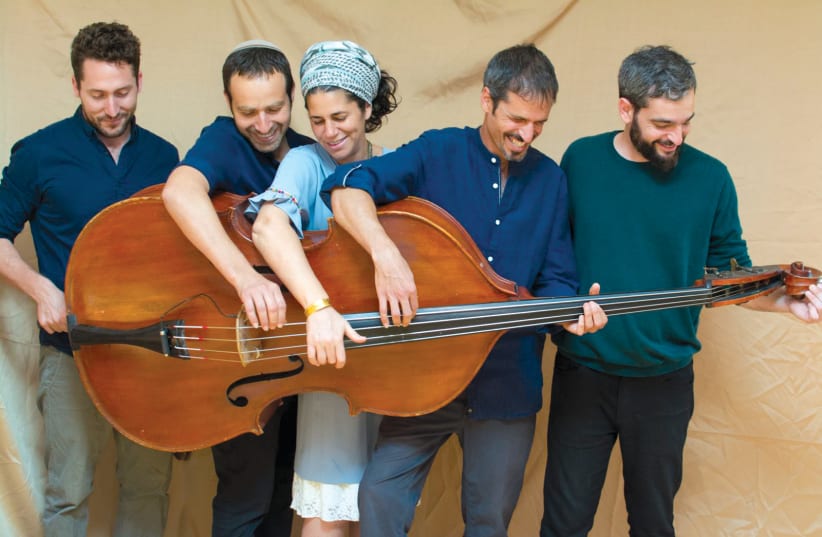“It was kind of natural to want to sing this prayer because it’s a bedtime prayer,” Brody said, calling it an “incantation” of sorts.
The words call on four angels to surround her — Michael to the right, Gabriel to the left, Uriel in front and Raphael behind — with God above her head. Brody imagined the angels surrounding the people of New York City, which she had left behind a week before when she drove to her parents’ home in Virginia to ride out the beginning of the pandemic, and protecting them as the first wave of the pandemic engulfed the city.
For Brody, a Jewish singer-songwriter who also leads prayer services and runs spiritual retreats, the healing intention behind that song came to characterize her music throughout the pandemic year.
Along with eight other Jewish singers and prayer leaders, Brody will showcase the songs written during the pandemic during a concert Monday night timed to the release of the studio recording of her “B’shem Hashem.”
For singers and musicians, the past year of canceled concerts has made the pandemic especially difficult. But for some it’s also been a year of expanded capacity to write new material. And for artists who focus on Jewish spiritual and devotional music, much of the new material has drawn on the challenging shared emotions of the pandemic and transformed them into prayer.
“We’re kind of hard-wired to digest grief and turn it into art or song,” Brody said of artists like herself. “I wrote an album’s worth of material through this last year, all transmuting loss into song.”
When the pandemic began last spring, Deborah Sacks Mintz had been preparing for a series of concerts and prayer services to promote her new album of Jewish music released in May. When those concerts were canceled, it not only kept her at home. It also forced Mintz — someone who works as a prayer leader and educator teaching her songs and leading communal singing experiences — to rethink her approach to music.
“It became clear to me pretty quickly that there was going to need to be a way for me to be willing to encounter myself and my own voice,” she said. “I couldn’t just be thinking about communal singing and gathering.”
While Mintz has typically drawn from the prayer book and the genre of niggunim, wordless melodies, that can be sung by a group, she found herself drawn to the poetry of Yehuda Amichai, an Israeli poet who died in 2000 and often infused his work with biblical imagery, and writing melodies for his poems.
“That’s something I probably would not have spent time doing before the pandemic,” Mintz said.
For Shir Yaakov Feit, a Jewish songwriter who leads Kol Hai, a Jewish Renewal community in New Paltz, New York, the beginning of the pandemic was the most prolific songwriting period of his life. Staying inside at his Hudson Valley home in March last year, he challenged himself to write a melody a day for a chapter of the book of Psalms. The book has 150 chapters.
“I’m afraid of committing to writing a psalm a day for the next 150 days, but maybe that’s what’s happening,” Feit said in the video from his first psalm tune on March 21, 2020.
Feit didn’t end up going through all 150 Psalms chapters, stopping at 70. But he’s proud of the melodies he wrote and hopes to return to the project someday to complete the second half.
“I probably hadn’t written 70 songs in the previous seven years,” he said.
Feit released his psalm melodies in YouTube live streams, with some racking up a few hundred views. While the videos were not a perfect substitute for the loss of in-person singing he normally leads at Kol Hai, he said the music was a way of touching people from afar.
“I think the power and purpose of music became much more clear, that sound literally touches us,” Feit said. “So I think the music that we made during the pandemic was a form of medicine.”
Brody is hoping to keep that ability for music to heal and connect at the front of her songwriting going forward.
“I really hope that what has happened this year, with the focus being on healing and prayer and community, that my music kind of stays there,” she said.
And Brody is already planning additional concerts to include more artists who wrote new material during the pandemic.
“There are so many artists out there who have written a healing song this year, so now I’m excited to try to make a platform for even more artists,” she said. “For more healing songs.”
